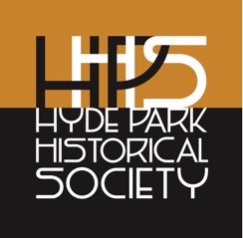Gwendolyn Brooks
Winner of the Cornell Award from the Hyde Park Historical Society in 2000
Poet Laureate of Illinois, Gwendolyn Brooks
In 1972 she published her autobiography. It is not about chronology but process, and, though the book stops in the year 1972, her process of enrichment has continued.
She was born in Topeka, Kansas, in 1917, and was three years old when her family moved to Chicago. Here she had many homes: 46th and Lake Park, 56th and Lake Park, 43rd and Champlain, among others. And now she lives south of 55th Street on South Shore Drive.
At age seven, she started rhyming words and by eleven was putting poems in notebooks-still in her possession. Her mother told her she would be "a lady Paul Lawrence Dunbar someday." Her family was warm and supportive, but she chose to be a loner who wrote poetry. She attended high school at Hyde Park Branch, Englewood and Wendell Phillips and then went on to Wilson Junior college. As a young teen ager she sent her work to well-known poets, among them Langston Hughes who responded enthusiastically and with whom she remained friends for life.
Later on, when Oscar Brown Jr. helped the Blackstone Rangers create "Opportunity Please Knock," he asked her to review it. She was so taken by the project that she srayed with the Rangers to help them write and develop it. (Incidentally,
"Opportunity Please Knock" was an exhilarating piece of theater.)
She went on Freedom Rides and slowly realized how deep and unconscious discrimination can be. She notes that even in Merriam Webster's Dictionary it shows up. When you look up the word "black," one of the meanings is given as "opposite of white." However, when you look up 11white11, there is no mention of "black." For her, integration then began to mean when Negroes (the educated, professional elite) embraced equally all Blacks (the masses).
Not having an "earned" degree, she now bas a whole string of Honorary Doctorates and many other accolades, but the ones she loves come from elsewhere. She speaks about a note from a 16 year old boy who was going to quit school until he heard her recite her poem "We Real Cool."
"Now I know there is no place like school, I would want co cell her how I feel inside my heart."
Gwendolyn Brooks never stops growing. In 1971, she flew for the first time and loved it "because it opened up new horizons-being airborne." She speaks with an open heart and doesn't have rules chat constrain her. One of her contemporaries says of her, "She is the continuing storm that walks the English language as lions walk in Africa." Her convictions, her strengths and her commitment come out of an exciting and inspiring life.
Gwendolyn Brooks' contribution has been to give voice and perspective to the story of the African American community which has developed within and become so important to the history of Chicago's south side and to Hyde Park. In the process she has enriched the lives of all of us.


